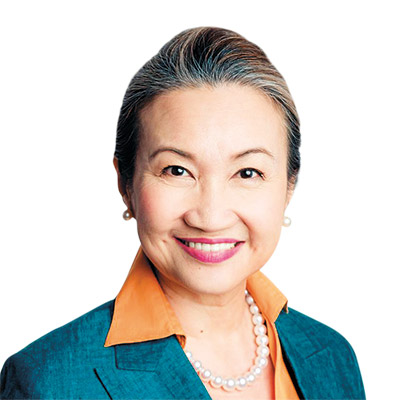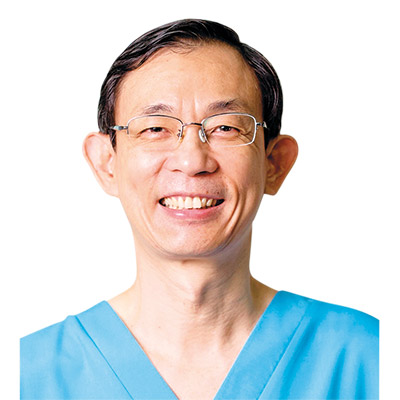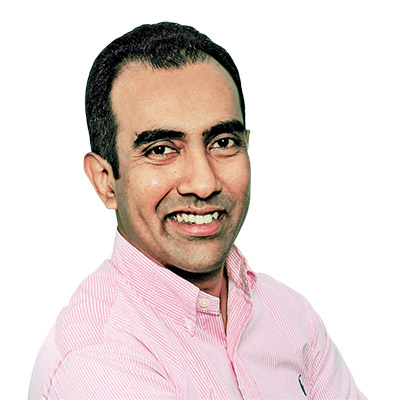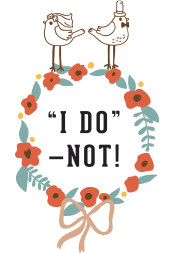Love In the Time Of COVID-19
Absence makes the heart grow fonder — or does it? Four alumni couples share the stresses and silver linings the current pandemic has presented to their respective relationships.
In Sickness And In Health
Catastrophes bring out both the best, and the worst, in people — and often, those nearest and dearest to them will be the ones to witness this. The pandemic and its associated hardships have taken a toll on many marriages worldwide, but have also brought couples closer in other cases. Our alumni talk about the implications of their newly-intertwined personal and professional spheres on their married life.
OUR PANEL

Ms Wong Lai Ping
(Business ’87)
Group controller of a solar technology company

Mr Sonny Yuen
(Business ’85)
Managing director of a headhunting company

Dr Sean Kuan Thye
(Arts and Social Sciences ’84)
HR director of a logistics company

Dr Cheah Kim Fee
(Dentistry ’90)
Dentist

Ms Neha Singla
(MBA ’11)
Divisional head of a technology company

Mr Atul Duggal
(MBA ’14)
Partnerships executive of a technology company

Ms Jocelyne Loh
(Arts and Social Sciences ’01)
Associate HR director

Mr Itmam Choudhury
(Arts and Social Sciences ’99)
Regional HR manager of an aviation company
How long have you been together?
Sonny Yuen: Lai Ping and I met at Raffles Hall in 1985 and have been married for 33 years. Our eldest is already 30 years old.
Sean Kuan Thye: Kim Fee and I met each other at the NUS Society and have lived together in Hong Kong, China, and are now back in Singapore. We have three grown-up children, two of whom live with us.
Atul Duggal: Neha and I have known each other for about 30 years now. We were in the same primary school and started dating in high school. We have been married for 10 years and have two kids, aged 18 months and 5 years.
Itmam Choudhury: Jocelyne and I have known each other for 13 years. We have been married for 11 years and have three young daughters. I think we’ve come to know exactly how the other will react in different situations, but that said, the length of a relationship is not a marker of how strong it is!
How did the global pandemic impact your work?
Our work-from-home arrangement has been a bit of an evolution — in the beginning when we shared the same space, we were literally stepping on each other’s toes. But we did come to realise the importance of personal space.
Mr Atul Duggal
Cheah Kim Fee: Dentistry is not something one can practise from home, so my income was definitely impacted, especially during the Circuit Breaker when only emergency cases could be attended to. That said, it wasn’t so stressful as I also teach part-time at a polytechnic. Also, Kuan Thye and I have planned our finances for situations when we don’t work for an extended period.
Sonny: I am in the recruitment line, so there has been much less work, and I did suffer a bit of income loss. However, I have also taken on work conducting training on personal data protection. It took adjustments – such as overcoming the difficulties of speaking for eight hours before a group. Lai Ping also took on a new job just before the Circuit Breaker began and that added to the household income. But I felt that she passed the stresses of dealing with a new job to me (laughs)!
Wong Lai Ping: Transitions become doubly tough when you are working remotely. The person I was taking over from is based in the United States, and the company is currently preparing for a listing on NASDAQ. In another time, I would have just flown over to work out the handover in person. However, due to travel restrictions, everything was done online and my days would start at 6am and end at midnight. To be honest though, I didn’t think I passed the stress to my husband (laughs)!
Itmam: I am in the aviation sector, which was perhaps the most greatly impacted by the lockdown. Thankfully, I still kept my job, but we are still not out of the woods and the business won’t be picking up anytime soon, so I have to brace myself for potential future impact. That said, I am not complaining: I still have a job, and the workload has stayed more or less the same. The stresses of the pandemic came from having to adapt to many changes – from movement restrictions to having to deal with kids while working from home.
Jocelyne Loh: During the Circuit Breaker, I was leading a lot of big regional projects and dealing with tight timelines. I was working an average of 12 to 14 hours a day. This meant that while I was home all the time, my mind was always somewhere else. Itmam would be screaming for me to join the family for dinner and I would say, “No, I have emails to send.” I had already been contemplating leaving my job prior to this, and this unsustainable workload became a big push factor. Eventually, I quit in October without a job and am taking a break now, before starting in a new role in 2021.
Has working from home together tested your relationship?
Kuan Thye: My problem was work-life separation, as I generally don’t know when to stop. After dinner, I would continue my work where I had left off, and ended up missing a few of my regular evening walks with Kim Fee. We have always been busy, even before the pandemic, and that 45-minute after-dinner walk was our couple time. But I’ve found that most people have gotten closer in the midst of combining forces to face this external threat of COVID-19.
Atul: Our work-from-home arrangement has been a bit of an evolution – in the beginning when we shared the same space, we were literally stepping on each other’s toes. But we did come to realise the importance of personal space.
Neha Singla: He would literally be doing a running commentary on my work, and even during my meetings! It certainly took some adjustment.
Kuan Thye: I occupy the living and dining room, while Kim Fee works in the study, so that has worked out quite well.
Kim Fee: That Kuan Thye has her meetings and calls in the living and dining room means that the shared space becomes out of bounds, so the children and I have to sneak around to avoid appearing in the background! That said, I wouldn’t say that there has been a lot of tension, and having the family converge for meals has been very nice.
Itmam: While it is very nice to have the family together, having that personal space is indeed important. I think there would have been a lot more strain if our family were cooped up in a small apartment, and this would have affected our ability to work effectively.
Jocelyne (To Itmam): I think we would have killed each other…
Lai Ping: Stepping on each other’s toes is inevitable while living in close quarters. But it is important to have a big heart and be aware that you need to be forgiving.
Sonny (To Lai Ping): Forgive me – I did not wash the toilet!
 10,542 marriages
10,542 marriages were solemnised between January and July 2020. This represents a
23% drop compared to the same period in the previous year.
Source: The Straits Times, 21 September 2020
A National Population and Talent Division survey conducted in June and July 2020 polled 4,100 Singaporeans aged between 21 and 45.
About 80% of those who were married indicated that they planned to delay having children for up to two years. Their concerns included shaky economic and employment prospects, and worries about the safety of healthcare facilities.
Source: The Straits Times, 10 October 2020
How has your lifestyle changed thus far?
Atul: I used to travel quite a lot in the region for work, but now I get to spend a lot more time with my family.
Kuan Thye: I used to have to travel about 50 per cent of the time for work. Being able to have daily meals with the family is a very nice change. When Phase 2 came along, Kim Fee and I also started a new couple activity of checking out different wet markets during the weekends!
Itmam: I personally like the idea of going to the office. It is nice to meet your colleagues, and then hang out with other friends after work. Not having that kind of affected me. Then there were other adjustments, especially the part where I had to deliver at work while handling the kids back when the schools were shut. With my wife spending so many hours at work, I took on the lion’s share of the child-minding — from putting them to bed and getting them to focus on their online learning modules to playing chauffeur after the Circuit Breaker. I felt I was the one sacrificing work for the family and it frustrated me as it was too lopsided. I needed my wife and the children’s mummy back for a sense of normalcy! But at the end of the day, maintaining a relationship is about tolerating and understanding, so I just bit the bullet — even though there were moments when I raised my voice and made my displeasure visible.
Jocelyne: We used to have a life with colleagues and friends, which was separate from our family, and that helped to set some boundaries — but these boundaries have disappeared. But we have also learnt to be tolerant of each other’s space. We also dipped into our savings after I quit my job, but we knew it was a temporary state. COVID-19 did curtail our spending — the restrictions force you to spend
more time at home, and not being able to go on holidays overseas all became enforced savings.
Lai Ping: We couldn’t let anybody into the house during the Circuit Breaker, so we had to do everything by ourselves and split our household chores.
Sonny: Yes. I really don’t do toilets, so we agreed that she would wash the toilet and I would mop the floor – but I would delay the cleaning as much as I could! However, I do much of the cooking. We also started to go for morning walks and swims.
Neha: While we used to have ‘couple time’ on weekends, we decided after the Circuit Breaker that we’ve had enough of each other during the week! Now we meet our friends on the weekends instead, and our outings as a couple have reduced. As a family, our time used to be packed with a lot of playdates and classes for the kids, parties, and so on. Going through the Circuit Breaker made us realise that it is okay to not have jam-packed days, and just sit down together and do nothing. I think it has worked better for us as a couple too.

Have the new norms made you discover something new about you and your partner?
I took on the lion’s share of the child-minding — from putting them to bed and getting them to focus on their online learning modules to playing chauffeur after the Circuit Breaker.
Mr Itmam Choudhury
Neha: I discovered that Atul is actually a fussy eater! But it also pushed me to be a lot more involved in meal planning, researching recipes, and learning more about healthy eating. Even my mother is surprised at how “homely” I have become.
Atul: We used to wonder how life will be when we are 60 years old and facing each other at home all the time. Seeing as we didn’t kill each other during the Circuit Breaker, we realised that we will be fine as a couple in the long term. It was also a bit of an awakening because while our jobs weren’t impacted, the wider climate made us realise the need to do financial planning.
Sonny: I never knew Lai Ping was into gardening! The little plot we have used to be all mine but now we fight each other for space — and if any plant dies, it is ‘my fault’ [chuckles]! I also realised that my wife can do a lot of shopping online — there’s always somebody at the door delivering everything from beer to seafood to ice cream, which I have been eating so much of just to clear the stock!
Kim Fee: We had thought about retirement prior to the pandemic, and what we would be doing if we weren’t working. The pandemic has pushed us to think even deeper about that.
Kuan Thye: I have learnt to ask Kim Fee and the children about their day rather than start the conversation with my problems. Instead of feeding the dinner conversation with a lot of talking, I now listen more.
What do you think is the silver lining in this pandemic?
Itmam: I picked up a new skill! To keep my sanity, I decided to make a different cocktail for every day of the Circuit Breaker. It was quite fun and I would like to think my wife benefitted from this project too…
Jocelyne: Er, yes... That aside, while it took a lot of trial and error to adapt to new routines, just being with each other in the house — and having that comforting presence of our loved ones around — has been very nice.
Neha: Getting to work from home and being around the children all the time meant that we saw the small developmental milestones of our youngest, which we had missed for our eldest child.
Atul: For me, the silver lining is definitely the hugs and cuddles from our children during the day — something that was impossible in our previous work arrangement.
If you’d like to join our Forum panel, do write to us at
alumnihelpdesk@nus.edu.sg to express your interest.
If you and your spouse are an NUS Campus Couple, we invite you to join the NUS Campus Couples Alumni Group by emailing Ms Julene Kee at
julenek@nus.edu.sg.